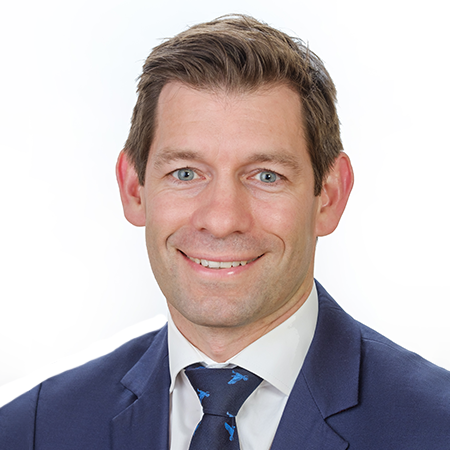Carver v Comcare – reasonable expenses and relevant documents under summons
Market Insights
In Carver and Comcare (Compensation) [2019] AATA 1534 (28 June 2019), the AAT considered whether Dr Sharman, an occupational physician who had treated the claimant, could recover fees and allowances for appearing at an earlier return of summons hearing (where he had objected to the production of certain documents) and for costs associated with complying with the requirements of the summons. In the course of considering the reasonable costs in the case, the Tribunal also made some guiding comments in relation to matters such as privacy, confidentiality, relevance, and the roles of the Tribunal and the medical practitioner receiving a summons.
Background
The Applicant, Ms Carver, applied to the AAT seeking to pursue compensation entitlements under the Safety, Rehabilitation and Compensation Act 1988. Ms Carver subsequently withdrew her applications on 10 September 2018 but, prior to the withdrawal of the applications, Comcare had requested the AAT to issue a summons in accordance with the its usual practice directed to “The Proper Officer, Hobart Occupational Medicine.” The AAT issued the summons on 28 November 2017.
Dr Sharman wrote to the AAT after receiving the summons raising a number of concerns about the requirement to produce medical records, and his correspondence was treated by the AAT as an objection to the production of documents. Deputy President Melick held a return of summons hearing on 26 February 2018. Dr Sharman appeared on his own behalf, and both Ms Carver and Comcare were represented. After submissions, Deputy President Melick inspected Dr Sharman’s documents and removed those he determined not to be relevant. Dr Sharman produced the records to the AAT and the parties were then given leave to inspect the reduced bundle of documents. Dr Sharman subsequently issued an invoice to Comcare in the amount of $6,061.47 for the costs of complying with the summons. Comcare offered to pay $633.80, and the dispute was listed for hearing before Member Taglieri SC on 18 January 2019.
Decision of the AAT
The Tribunal noted that what is payable to a person complying with a summons must be determined according to section 67 of the Administrative Appeals Tribunal Act 1975 (AAT Act). This section in turn refers to the Administrative Appeals Tribunal Regulation 2015 (AATR).
Dr Sharman had the option of producing the entirety of his records in compliance with the summons, and if he had elected to do so regulation 13(6) of the AATR would apply and he would have been compensated under s.67 of the AAT Act. However, he contested the production of some of the documents summoned, which resulted in his appearances before the Tribunal. It was therefore relevant to consider whether his appearance constituted the giving of evidence within the meaning of regulations 13(3) and 13(4) of the AATR.
The AAT held that Dr Sharman was entitled to object to the production of some of the documents summoned. He followed the process open to him in the ‘Notice To A Person Summoned To Produce Documents’ and, therefore, he had not acted unreasonably in doing so. As Dr Sharman was required to appear in the Tribunal and participate in the return of summons hearing, regulations 13(3) and 13(4) were engaged. It was apparent that he provided information orally about the nature of the records and his objections, but also complied with the summons. The cost of appearing at the return of summons hearing was therefore recoverable.
In regards to the legal costs Dr Sharman incurred when seeking advice about compliance with the summons, the Tribunal held that this was a reasonable cost that was recoverable pursuant to regulation 13(6) of the AATR. However, it was noted that because Dr Sharman now had legal advice on the issue, the costs of further advice on future summons would not be recoverable.
An allowance for the reasonable expenses incurred in producing the documents that Dr Sharman produced at the return of summons hearing was also recoverable (eg. cost of photocopying documents for production, cost of disc for electronic production).
However, communications between his colleague, Dr McArdle, the medical indemnity insurer, and the Tribunal and Dr Sharman were not recoverable, on the basis these communications were not for the proper purpose of complying with the summons. The Tribunal found that Dr Sharman had engaged in these communications due to personal concerns and to garner support for them. Whilst it was reasonable for him to do so, the tasks were not compensable under the AATR as they were not reasonable in order to comply with the summons.
In relation to this point, Member Taglieri SC held that there was “a distinction between what doctors are required to do to discharge their professional duty to patients or to practice according to standards expected by the Medical Board of Australia and that which is required by law when served with a summons.”
Member Taglieri SC concluded her decision with some observations to provide guidance to any person issued with a summons to produce documents only, including the following comments:
- Reasonable endeavours should be engaged to comply with a summons to produce documents only;
- Concerns about confidentiality or privacy are a matter for the patient and not the doctor. Professional requirements imposed on doctors concerning recordkeeping can be satisfied by advising patients that information collected by the doctor can be compelled for production to courts and tribunals;
- Whether medical records are relevant to the issues in dispute is a matter for determination by the Tribunal;
- There are very few reasons at law which excuse non-compliance with a summons. Any objection to producing documents needs to be clearly articulated;
- If a return of summons hearing becomes necessary, formal determinations need to be made in relation to each ground of objection; and
- A party asking the Tribunal to issue a summons to produce documents has a responsibility to carefully express the description of the documents to be produced.
This article was written by Luke Taylor, Partner and Daniella Phillips, Solicitor.
For further information, please contact any member of our National Comcare Claims group:
Subscribe for publications + events
HWLE regularly publishes articles and newsletters to keep our clients up to date on the latest legal developments and what this means for your business. To receive these updates via email, please complete the subscription form and indicate which areas of law you would like to receive information on.
* indicates required fields




